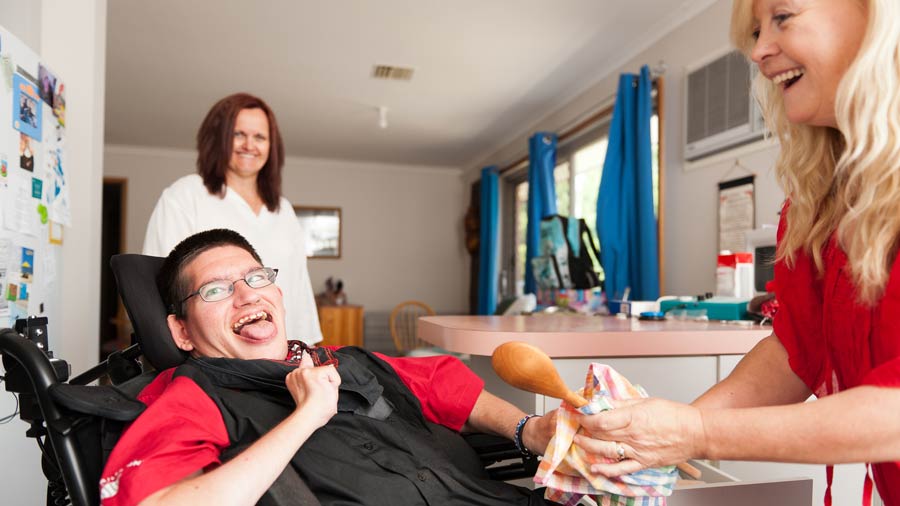Ageing well
Recommendations for improving outcomes in housing and care for our ageing BAME population and all older people

STRATEGY
Image: Istock

Abdul A Ravat
Co-Founder of the National Ageing Well in BAME Communities Network; Head of Development & Relationships, The Abbeyfield Society; Vice-Chair, Manningham Housing Association; Board Member, Johnnie Johnson Housing Trust
The All-Party Parliamentary Group (APPG) on Housing & Care for Older People has been conducting an inquiry into the current state of housing for those living with dementia. Key takeaways include that:
- The government is not prioritising enough of the housing budget for elderly provision. 450,000 older people are privately renting and face affordability challenges when stability, care and compassion are critical;
- Just 7,000 homes for older people were built in 2019, a 75% reduction from 2010.
The APPG has proposed a target of 30,000 new homes a year targeted at older people.
Current housing for older people
The National Housing Federation found that just 11.3% of the country’s 2.5 million affordable homes, are designated for older people, and 80% is self-contained. Meanwhile there is little data captured on dementia (affecting 850,000 people in the UK and projected to rise to 1.6 million by 2040), and nothing on provision for people from BAME communities.
Clearly, better monitoring can improve understanding, transparency, and scrutiny. The following evidence, mostly produced by the Race Equality Foundation, shows that demographic and environmental conditions ultimately affect service demands.
1. Ageing BAME population
The UK’s BAME population is ageing. Between 1991 and 2011, there was an increase from 860,000 and since then increased to more than 1 million. The Muslim Council of Britain (MCB) estimates that the Muslim population (the largest ethnic group) will increase fourfold between 2019 and 2036.
Change in the age breakdown of BAMEs over the age of 55 according to 1991 and 2011 Censuses
BAME people aged 55+ from 1991 Census
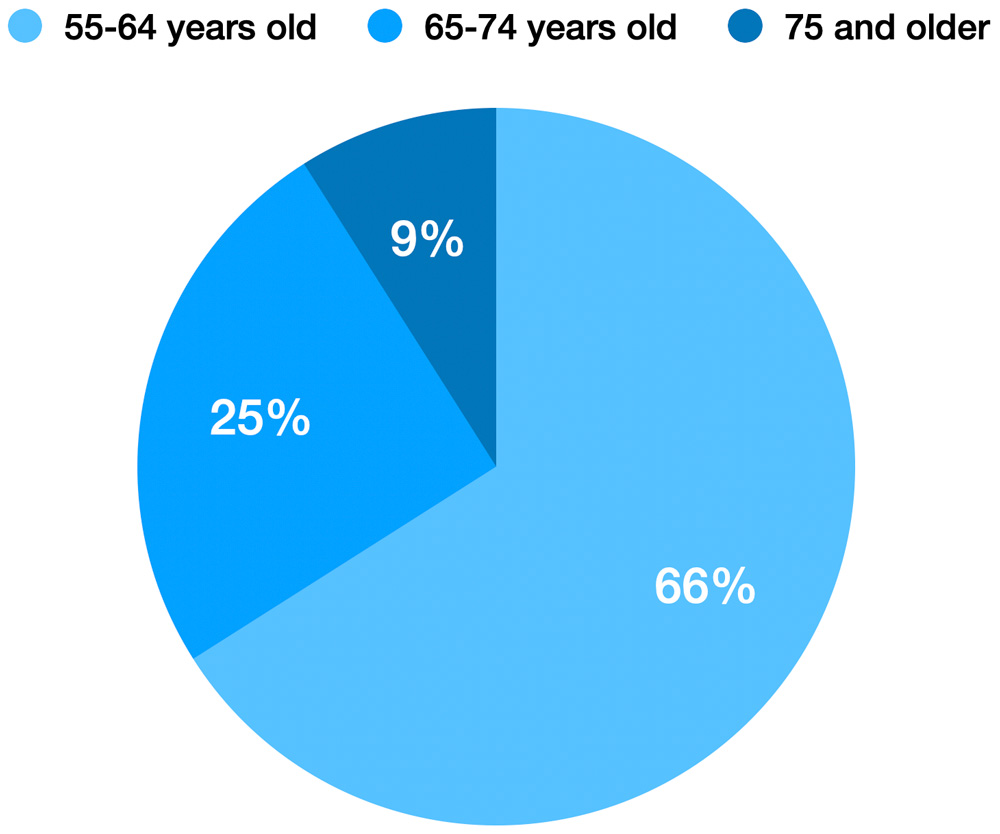
BAME people aged 55+ from 2011 Census
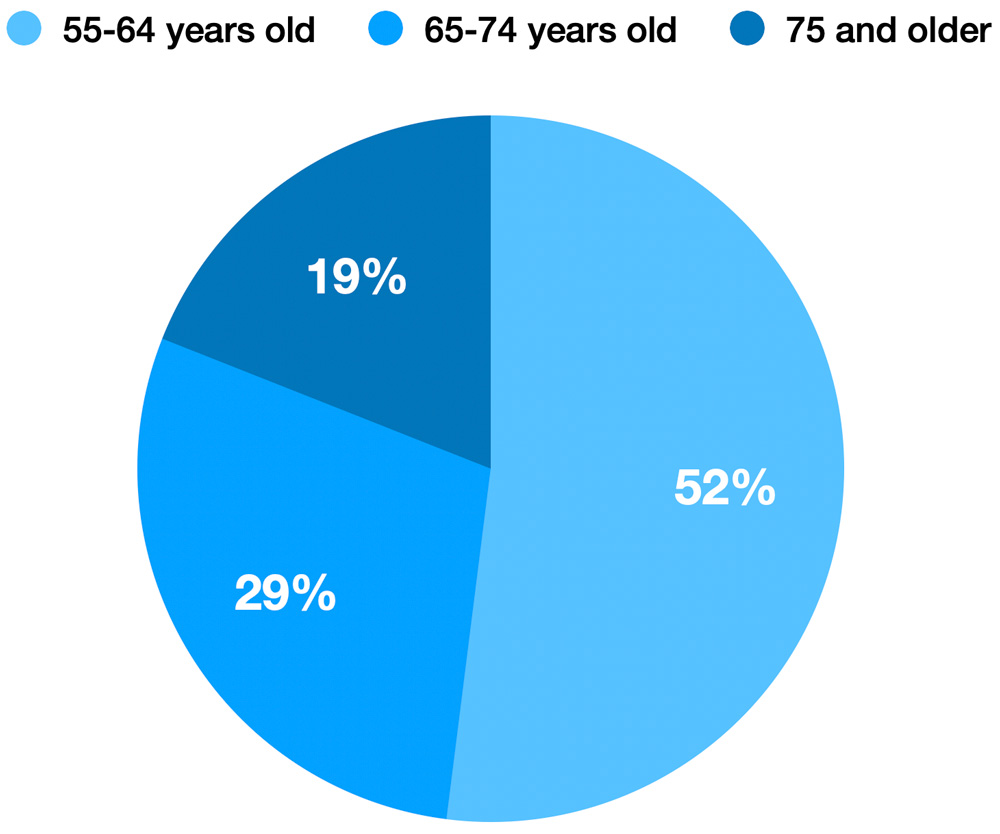
Source: Race Equality Foundation
2. Rising dementia
Bearing in mind the increase in the over-75s cohort, especially among Indian, Caribbean and Pakistani people, the incidence of dementia can be expected to rise significantly.
BAME people 75 years and older, 1991 to 2011
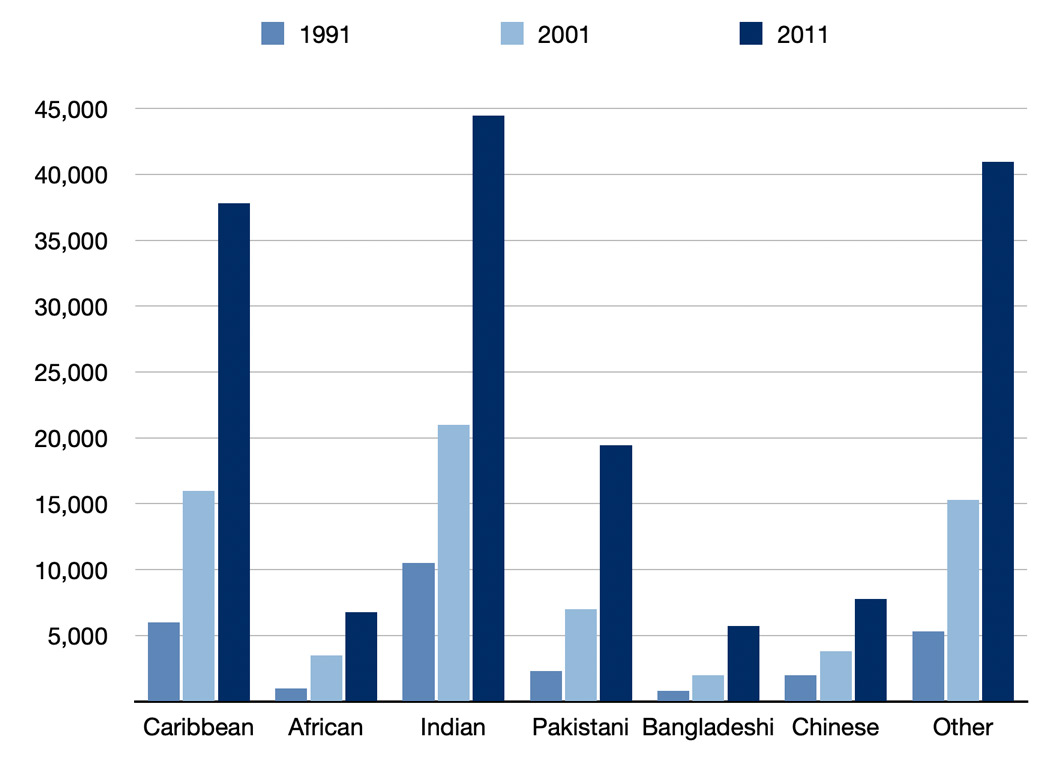
Source: Race Equality Foundation
3. Housing deprivation among BAME people
BAME people live in greater housing deprivation, compared to their white counterparts. They are:
- Over-represented in inappropriate private rented accommodation;
- More likely to live in overcrowded and poor-quality housing;
- Overrepresented in the most deprived areas; and
- More likely to be homeless.
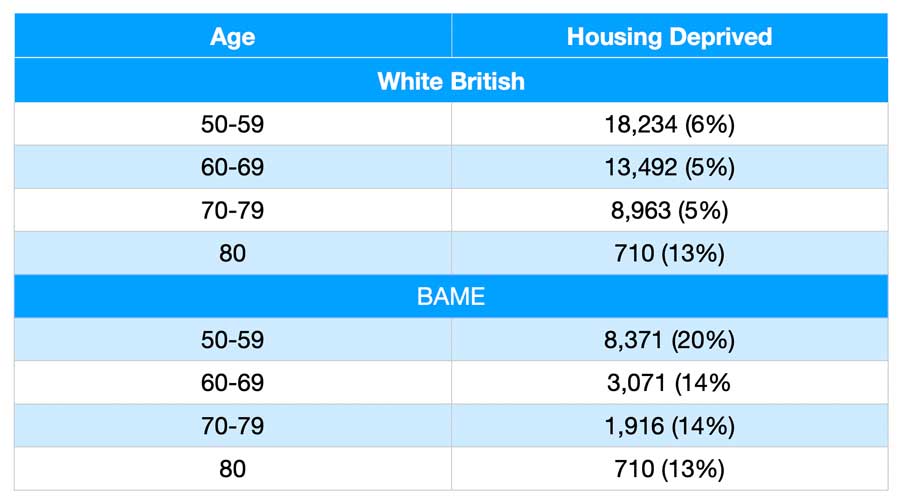
Source: Race Equality Foundation, Housing and the older ethnic minority population in England (2019)
“The Muslim Council of Britain (MCB) estimates that the Muslim population (the largest BAME ethnic group) will increase fourfold between 2019 and 2036”
Why is the housing sector failing to address these demands and demographic needs? Some housing providers are getting it right though, such as Accord in the West Midlands, which provides specialist services to more than 6,500 older people. Through its work at present is addressing four key areas:
- How culturally sensitive is design?
- What additional measures are needed in new or remodelled housing?
- Does the service model, staffing structure and food recognise faith and culture?
- How can marketing and digital tools be used to better deliver Accord’s desire to reach different BAME communities?
In recognition of the current situation, BME National – an umbrella body for over 45 housing associations working in some of the most disadvantaged parts of the country – recently launched a revised mission statement, with ‘Ageing Well’ identified as a key priority.
Solutions
So what can be done to begin to address the fact that there are stark differences in how people experience later life? While many enjoy the benefits of longer lives, others experience it as a time of continuous hardship, ill-health and reduced life-expectancy.
Key recommendations put to the APPG inquiry by the Ageing Well Network, include that:
- Steps are taken to ensure that culturally and faith-based sensitive housing and care services are provided to those living with dementia from BAME communities;
- Government, statutory agencies, health, housing and care providers should address the ageing well challenges for BAME communities in their strategies, provision and funding;
- The APPG explores the Ageing Well for BAME Communities approach and explores investment in the Network;
- Pilots are put in place to aid understanding of services which currently deliver real choice and options to older people from BAME communities living with dementia.
What’s next?
Fundamentally this is about choice: choice for more people to live in safe, accessible, affordable homes and environments, supporting independence and valuing cultural sensitivity.
BAME housing providers also need to respond to their older residents requiring greater care and support. The conventional view of the extended family delivering care may no longer be accurate. Alternatives must be considered and larger providers, receiving government funding, could do more to lead this charge.
Ultimately, the ‘Ageing Well BAME Network’ wants to improve outcomes in housing and care for older people – many of whom who will eventually encounter dementia. I urge others to join and work with us to improve outcomes for all sections of the community.


